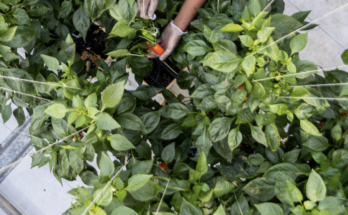The long-awaited approval of the Genetic Engineering Appraisal Committee (GEAC) to the GM mustard has brought two good news for India. First, the genetically modified (GM) variety of mustard will help the country achieve self-sufficiency in edible oils by boosting overall productivity. Second, it will facilitate the release of other crop varieties developed through genetic engineering. This would help us attain food security and nutritional security in an expedited manner. The GEAC’s landmark decision has approved a food crop for commercial release for the first time.
India has so far allowed commercial cultivation of non-food Bt-cotton crop varieties. The GM mustard variety, known as Dhara Mustard Hybrid (DMH)-11, had faced fierce opposition that was purely based on unfounded and unscientific reasons. Since the technical body of the GEAC has approved it, the case of GM mustard appears vindicated, clearly showing the edible oil crop is safe for human consumption and the environment. The government of India is quite positive about the commercial release of GM mustard. So the green signal for the development of new and high-yielding GM mustard hybrids and seeds is expected very soon.
GM mustard is going to be a game-changer. It offers the opportunity for the development of hybrids with a higher yield, efficient use of water and fertilisers, improved oil quality and disease resistance. While India’s domestic consumption of edible oils has increased by 2.5-3 times since the 1990s, the production however has increased marginally. This has made us rely heavily on imports to meet our domestic demand. We have imported around 13.35 million tonnes of edible oils in 2020-21.
You may also like to read: Facts you need to know about the growth of production of pulses and oilseeds in India
Mustard oil is the widely consumed edible oil in India. The average output of mustard is 1,000-1,300 kgs per hectare, which is quite less compared to over 2,000 kgs in other countries such as Australia, China, and Canada where GM hybrids are cultivated. We need to increase the production of edible oilseeds by 20 million tonnes in the next five-six years.
Experiments conducted under the Indian Council of Agricultural Research’s (ICAR) supervision showed the GM mustard variety DHM-11 has an output advantage of 29-37 per cent. This can help farmers enhance their farm income and will encourage more farmers to cultivate mustard, which will boost edible oil production. Higher production will lead to a reduction in oil imports and make us self-sufficient gradually.
India has witnessed a massive 174 per cent increase in edible oil imports in the past decade. This makes it imperative for us to embrace technological solutions to address vulnerabilities arising due to climate change, volatility in international markets, and geopolitical tensions. Indian farmers should not be prevented from accessing new technology that can benefit their farms, income and domestic consumers. Many farmer organisations in the country have welcomed the GEAC’s decision and appealed to the government to allow its commercial release at the earliest. They are also seeking permission to cultivate other genetically engineered crops including Bt-brinjal and HT-cotton. Biotechnology has answers to several conventional and contemporary problems that the agriculture sector faces.
You may also like to read: New groundnut varieties to boost farmers’ incomes in Telangana
GM mustard is paving a way for transformation in Indian agriculture. It will be easier for us to achieve food security and nutritional security at a greater pace. This will help facilitate the introduction of many genetically engineered varieties including rice, wheat, maize, brinjal, and castor in the market for commercial cultivation.
Although it has taken over a decade to reach this stage, the GEAC approval has rekindled hopes for the use of biotechnological solutions. They will make our agriculture better, more profitable, and more resilient in times of climate change.
(Dr Shivendra Bajaj is the Executive Director of Federation of Seed Industry of India and Alliance for Agri Innovation. Views expressed in the article are author’s own. Agriculture Post doesn’t assume any responsibility or liability for the same.)





